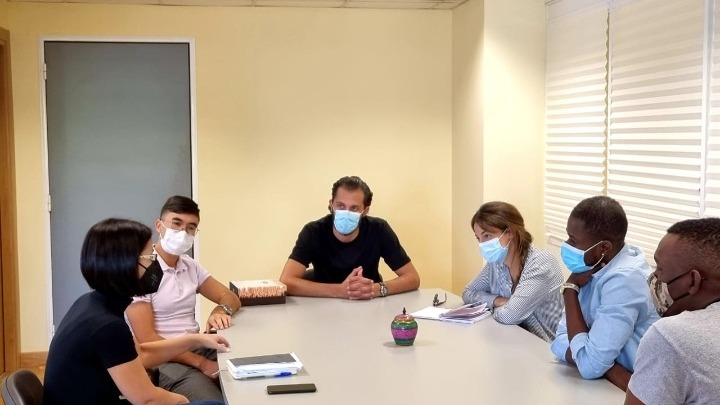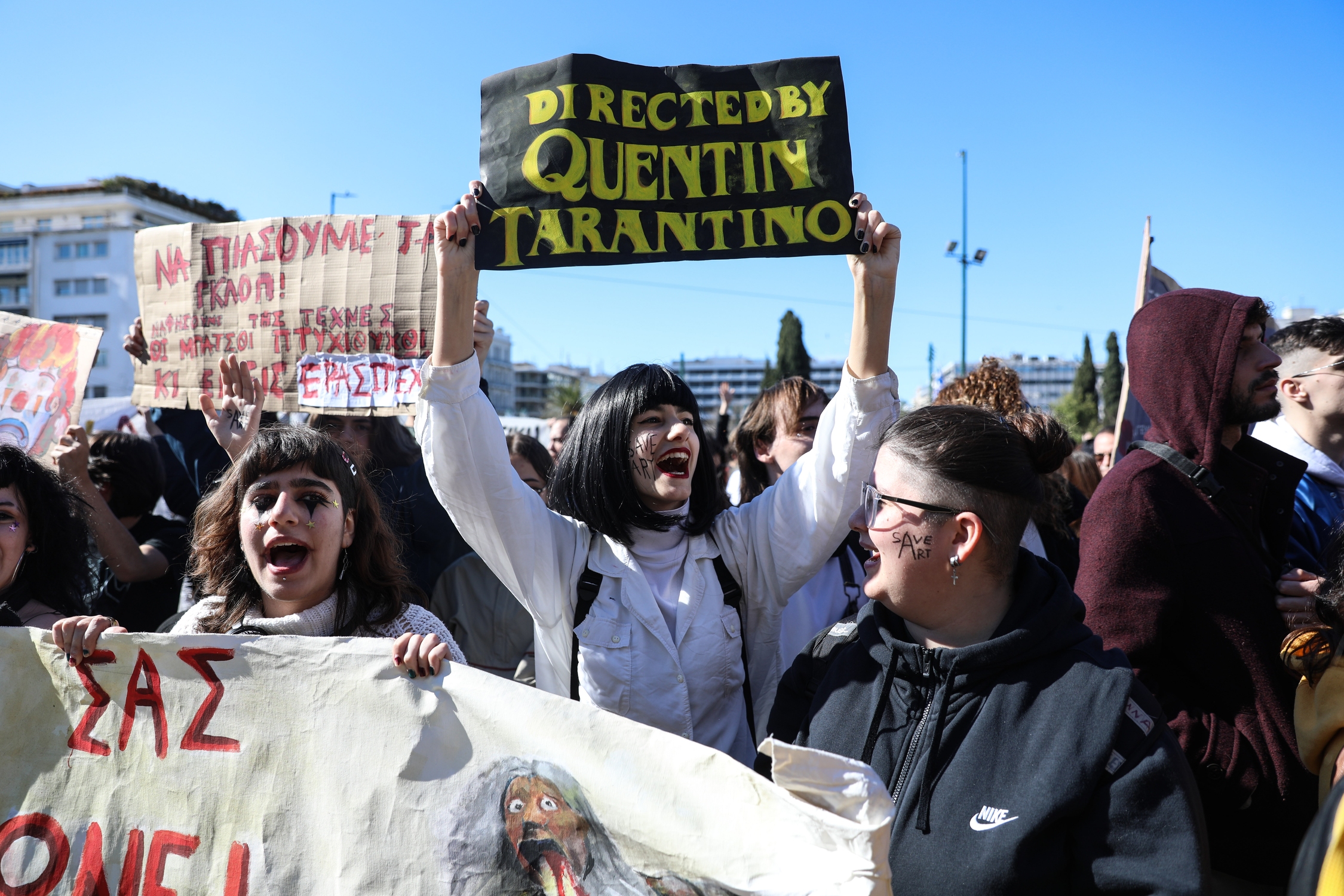From unaccompanied incompetent mentors with the Ministry of Immigration
Hady Mohebbi started as an unaccompanied teenager from Afghanistan to come to Greece and five years after this long journey he studied at the Department of International and European Economic Studies of the University of Western Macedonia and collaborates with the Ministry of Children.
Hady, now 23, describes to APE-MPE that he left Afghanistan because of the war with only a few clothes in his construction and a math book, which accompanied him throughout his journey.
In 2016 he arrived in Lesvos and after a short stay in the Moria Prison, he found in the hostel for unaccompanied members of the Iliaktida organization, where he was transferred, “the security and the rights that every refugee seeks”. Then he decided to enroll in the evening school of the island. Even after he reached adulthood, he continued his evening high school in Thessaloniki and graduated last summer. Then he passed the national exams and went to the school he wanted most. At the same time, he has started distance learning in computer science at the American University of the People, from where he received a scholarship.
As he explains, “I am from the Khazara tribe, the same opportunities were not given to us in Afghanistan. This made us ask, seek, not want in education. Also, from a young age he wanted something big for me, to reach high. I have goals and I fight for them “.
In recent months, Hady has been working through EASO on the Mentorship program of the Special Secretariat for the Protection of Unaccompanied Minors. The first four unaccompanied were from four different countries of origin, Hady, Amandou Kain Kamara from Guinea, Keita Alasan from Cφανte d’Ivoire and Nourdin Alsahin from Syria.
“We have all come here as unaccompanied at different times, we have experienced all the difficulties that children are experiencing now and that makes us understand their concerns and problems. We talk to them and take them to the ministry of their problems. “We work like a bridge of communication between the ministry and the children,” Haddy explains. He points out that the most important thing for the four mentors, “what opened many doors for us was to learn the Greek language and go to school. This explains to the children that they will help them in every part of their life, in the labor market, in their integration “.
Anxiety about the legal status
The most important issue that unaccompanied children are discussing is, according to Ivory Coast’s 27-year-old mentor Keita Alasan, their legal status, as she worries about what will happen if they do not get asylum. Keita answers them with his own story. He came to Greece in 2010 as an unaccompanied minor and sought asylum at a time, as described in the APE-MPE where the protection of unaccompanied children was limited, there were not enough foreigners or financial support. At the age of 16 he had to stay in a house of 50 square meters with another 17 people. “I was shocked. “I had to stay there for a year and to make money I collected glasses, shoes, clothes from the garbage and sold them,” he recalls. Then, he found a place in a hostel in Athens, so he decided to go to school. “In the beginning I went to school just to pass my time, but slowly I started to be more interested, I had very good teachers who made me want to continue in school” he says and adds: “But at night I cried in the hostel because I did not know what would happen, it was the worst moment in Greece with the crisis and I was afraid “.
After graduating from high school and working as a translator in Prague, Keita made the coveted asylum decision: no. “It was the biggest shock for me. “Even though I had finished school here and was working, I was told that I had to leave the country.” Keita was very disappointed, but managed to get a residence permit due to his seven-year stay in the country. He conveys these experiences to the children he meets with strangers and to the semi-autonomous living quarters, which he visits with other mentors. “A child can describe to me that he is disappointed that he did not get asylum. I have exactly the same story. And then he feels that he has hope. I tell them to learn the language, not to sit at home, to go to school, to seize the opportunity. “But also not to get involved in anything illegal,” he says.
Undersecretary of State for Immigration and Asylum Sofia Voultepsi describes the Mentorship program as an “emblematic initiative that will have a significant impact on the practice of unaccompanied minors” and believes that the program “will be a good practice for other EU Member States”. ».
“With this program we achieve a double goal”, points out to APE-MPE the special secretary for the Protection of Unaccompanied Minors, Irini Agapidaki. “On the one hand, we give opportunities to people who have succeeded in our country, are integrated and can act as role models and others can join. “On the other hand, as a policy-maker, we also receive valuable information about what they are trying to plan.” The role of the mentors, according to Mrs. Agapidaki, is “the empowerment, support, facilitation with the children, as well as the feedback to the ministry for the actions that we develop”.
The four mentors demonstrate, as the special secretary points out, that unaccompanied children “of course want protection, they are children, but they are children who are thirsty and want to take their lives into their own hands, they want to do the deed and move on.” “They are not victimized people, they may be injured, but they are not immobilized.”
The program is used with the support and funding of the European Asylum Support Office (EASO).
SOURCE: ΑΠΕ-ΜΠΕ




